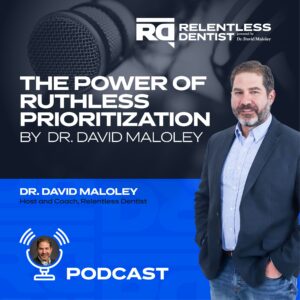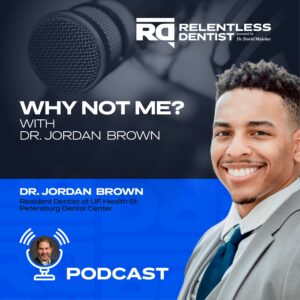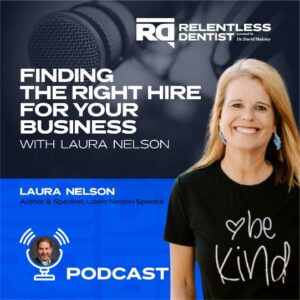by [email protected] | May 12, 2021 | Prescriptions for your Practice
Podcast: Play in new window | Download

Stephen Covey was spot on when he said, “The key is not to prioritize what’s on your schedule but to schedule your priorities.”
If you want to make more with less work, you need to leverage the principles of ruthless prioritization, that is, eliminating anything that does not add value toward achieving your goal.
Sometimes, you need to get rid of the good to focus on the great.
In this episode, I talk about the aggressive and scary move I made in 2016 to carve back some personal time from my workdays and still able to grow my practice. I’ll also discuss how to find the hidden potential in life’s harsh realities of unfairness. And as a bonus, I’ll share with you 5 highly recommended books to guide you on how you can make more by working less.
Tune in and find solutions to common practice issues at Prescriptions for Your Practice
Key Quotes:
- “You can make more and work less each and every year by leveraging the principles of ruthless prioritization.”
- “The reality is that the world is incredibly imbalanced and you have to embrace the harsh realities of ‘unfairness’.”
- “Sometimes you need to get rid of the good so you can focus on the great.”
- “Document and focus on the things that really create a lot of focus and power and the things that are disempowering.”
- “If you are going to chisel your big patients based down to one person who would you start with?”
- “If you give all your time and attention trying to fix your bottom performers, you’ll ultimately end up losing some of your best talents.”
- “How can you eliminate, delegate, automate the bottom few [assignments]? How can you find more time and focus in the top few [assignments]?”
- “Who are your multipliers? The ones who naturally align with your core values and mission and get you consistent results.”
Featured on the Show:


by [email protected] | Apr 28, 2021 | Magnificent Marketing
Podcast: Play in new window | Download

This week’s guest, Stuart Faught of Praze, is a well-known figure in the dental sphere as his expertise in reputation management has assisted thousands of dental practices to grow exponentially by helping them develop and enhance long-term trust.
Listen in as Stuart offers some tips on leveraging excellent patient treatment and excellent patient experience into quantifiable online reviews to establish yourself as the most trusted dentist in your community. We also talked about how you can lower your marketing costs by building your practice while boosting your reputation.
Tune in and learn more about Magnificent Marketing
Key Quotes:
- “Leveraging these different platforms to establish yourself as the most trusted dentist in your community is key now more than ever.”
- “I think dentists really need to understand that they have an amazing opportunity to literally be perceived and literally be the most trusted dentists in their town.”
- “Know where you’re at and then focus where it matters.”
- “It’s interesting to know that the most profitable practices, they all had one thing in common according to our studies. What is that one thing? They all had 300 or more testimonials.”
- “It’s always been my goal and mission to every practice we work with to help them become the most trusted dentist in their town. And we feel like the realistic path to achieving that is that one simple thing, let us help you get 300 positive reviews on Google.”
- “I quickly learned that really what was getting the patient from an internet search into the actual chair was those doctors who had the most and best reviews.”
- “There’s still a lot of the doctors who don’t realize that as a rule of thumb, the more positive reviews you have on Google, the more likely you are to be rewarded by Google and popping up in a search.”
- “I know that practices really value growing by word of mouth and it’s something that any business owner can take pride in. But I think that a lot of dentists still don’t realize that online reviews are modern-day word of mouth, right? And they’re these digital testimonials that live forever.”
- “They call that review marketing and it’s basically taking your positive reviews and marketing them over and over and over again. So the best way to do it is to leverage them on your website.”
- “I think that definitely, everyone should be on the same page as far as the doctor’s vision for the practice.”
- “If and when you get that negative review, it’s almost a great thing. As long as you’ve got a system in place, that’s gathering a bunch of positive reviews because you know, it makes those positive reviews look even more authentic.”
Featured on the Show:


by [email protected] | Mar 31, 2021 | Bold Biographies
Podcast: Play in new window | Download

Dr. Jordan Brown reminds me of what’s good about the profession of dentistry. His “Why not me?” attitude is truly admirable. He may be a resident, but don’t let his youth fool you — he is wise beyond his years. His robust story, compelling bio, and positive disposition will surely inspire many in our profession.
Listen in as Dr. Jordan talks about skyrocketing dental tuition, becoming a lifelong student of clinical and communication skills, the importance of access to care of the underserved, and leveraging Instagram as a force for good.
Tune in and find more Bold Biographies
Key Quotes:
- “From seeing that transformative experience from a close family member of mine, that kind of led me to want to not only be a dentist, but be a dentist that’s practicing in underserved areas where I know my work will have the biggest impact on those patients.”
- “I knew I wanted to work in these [underserved] communities and I knew I wanted to have advanced training. So that way, when I did go out and venture on my own, I would know how to handle these cases in a methodical way. Not only just to get the job done, but to get the job done well.“
- “Information should be shared. Knowledge is power.”
- “There are a few different ways that dental students can pay for tuition. One is loans. Most people do that. Second, military. Military is a fantastic option for paying for dental school. But there’s a third lesser-known option that a lot of people don’t know about. And that’s what I did. So I did the National Health Service Corps scholarship program.”
- “You can either work in a fairly qualified health center, you can work in private practices, you can start your own practice. From a private practice standpoint, you can start a practice, but it has to satisfy the criteria that the program sets forth.”
- “In my life I always follow the model of ‘Why not? Why not me?’”
- “I never let difficulty deter me from reaching my goals. And I highly encourage all your listeners, students, dentists, just to think about why can’t you be that person that great things happen to.”
- “You have to make your patients like you because people buy things from people they trust. Patients will not accept your dental treatment recommendations if they don’t like you.”
- “The last thing that I think is really important is that, when you’re checking out your patients at your desk, give them your personal cell phone number.”
- “You have to go above and beyond for your patients because they can go anywhere else to get that treatment.”
- “You can always improve upon yourself and always have a growth mindset. That when you have any setback, any failure in your career, just use that as an opportunity to learn, grow, and improve and just to do better.”
Featured on the Show:


by [email protected] | Mar 24, 2021 | Legendary Leadership
Podcast: Play in new window | Download
 Hiring is complicated. You don’t want to be working with a team who doesn’t embrace and support your goals. Good thing Laura Nelson is there to guide us throughout the process. She recently released a new book, “Hiring without Hesitation: A How-To for Small Business Success” which I am excited to share. I’ve known Laura for a long time, and I admire the honest value she’s bringing to the dental industry.
Hiring is complicated. You don’t want to be working with a team who doesn’t embrace and support your goals. Good thing Laura Nelson is there to guide us throughout the process. She recently released a new book, “Hiring without Hesitation: A How-To for Small Business Success” which I am excited to share. I’ve known Laura for a long time, and I admire the honest value she’s bringing to the dental industry.
Listen in as Laura talks about best practices in hiring the right people for your practice and how to quickly spot a potential rockstar. She also touches on office culture and why you should involve the whole team in the hiring process.
Be inspired and meet more Legendary Leaders
Key Quotes:
- “ It starts with leadership. It really starts with your attitude about hiring. if you think there’s no good people out there, then there’s going to be no good people out there.”
- “You need to have an environment and a culture where people want to come to work there because they’re considering potentially leaving somewhere else maybe, or part-time or whatever to come to you.”
- “If you wait to just hire when you need it, and you’re desperate, you’re gonna hire a square peg and try to put it in a round hole and then you’re going to fail and then you’re going to hit hiring and it’s going to be the cyclical problem that you have.”
- “Always be looking. Don’t rely on just when you need it. ‘Cause if you wait until then it’s going to probably be too late.”
- Let them [team] know that you’re always looking. First of all, it’s going to keep them on their toes. And then second of all, they’re not going to be whispering in the break room going,” Oh my gosh, you know, the [boss] is doing an interview. Who’s he canning? Who is he letting go?” Right? Like it’s just full transparency. So I definitely think involving your team is an important part.”
- “There’s a difference between a job description and a job advertisement. So we need a job description, right? We need a checklist of what are they going to get trained? What are they responsible for and what are they accountable for? But an advertisement is meant to attract.”
- “I’ve had some dental assistants who are amazing at six months and I’ve had some that stink after six years. So, it doesn’t really matter, the amount of experience. So, really going through your job ad and saying, what is required? And then what is nice to have?”
- “ I’ll take personality over experience all day long.”
- “I want somebody to be teachable with experience. That’s the best, that’s the rock star, right? But if they’re not teachable and they’ve got a lot of experience, like you said, they could be stuck.”
- “And again, it ties back to the leadership and the culture. You know, you’ve got to foster a culture, that’s like that, the ability to make mistakes, the ability to learn and grow their ability to take responsibility, to work together as a team for you to be vulnerable for.”
- “You can take a rockstar, put them in a bad culture and kill them. Or you can take an average employee and put them in an amazing culture and make them a rockstar.”
- “Reference checks — and I’ve been guilty of not doing them. You’ve been guilty of not doing them. They are so important. And it’s important.”
Featured on the Show:


by [email protected] | Mar 17, 2021 | Magnificent Marketing
Podcast: Play in new window | Download
 I have a confession to make. My journey to business was not a piece of cake. You see, I’m an introvert posing to be an extroverted guy trying to connect with the community where I was building my practice. Then came Matthew Pollard, the person that I can relate to. He is the author of the well-received books “The Introvert’s Edge. How the Quiet and Shy Can Outsell Anyone” and “The Introvert’s Edge To Networking”. He’s also a confessed introvert. Yet, instead of making his introversion a handicap, he successfully transformed it into an asset and made it work to his advantage.
I have a confession to make. My journey to business was not a piece of cake. You see, I’m an introvert posing to be an extroverted guy trying to connect with the community where I was building my practice. Then came Matthew Pollard, the person that I can relate to. He is the author of the well-received books “The Introvert’s Edge. How the Quiet and Shy Can Outsell Anyone” and “The Introvert’s Edge To Networking”. He’s also a confessed introvert. Yet, instead of making his introversion a handicap, he successfully transformed it into an asset and made it work to his advantage.
Listen in as Matthew talks about how to find systems that will allow you to fill those skills gaps and leverage on your natural introverted strengths. Find a strategy as an introvert that will work for you.
Be inspired and tune in to more Magnificent Marketing Episode Podcast
Key Quotes:
- “I think the important thing people will realize is, being an introvert doesn’t mean you’re a second-class citizen. It also doesn’t mean you should behave more extroverted and that’s the key to success.”
- “The important thing for introverts to know is that your job is not to educate the client with your years of experience. It’s to motivate and inspire action while embedding you as the only logical choice of which to do that action with.”
- “So the biggest thing that I want everyone to know is first, you don’t need to be extroverted. But as an introvert, it’s not over. Educate and inform to get them to make a decision. It’s to tell them what they need to know to help them make an easy decision.”
- “Let’s frame this in a way that everyone will understand. Real costs — Okay, I’m going to need concentrating because I haven’t done this expensive thing. Second, opportunity costs. Here’s what it’s going to look like if I grind my teeth for the next 20 years and the expensive treatments that I’m going to potentially have because of that. And the emotional cost is, I’m stressed.”
- “You said, we know this, we know this, we know this, we know this. Yes you do. But by saying all of these things, here’s what I hear as a customer. Okay. Fear, fear, jargon, issues, risk, fear, and money. That is all I hear in my head. It sounds like you’re trying to scare me into spending money. It does not sound like you care.”
- “People always have the money. They just act to you that they don’t because all they’re hearing is jargon. Now your teams are just as bad at this. As a matter of fact, they are less experienced than you.”
- “Don’t sell stuff to people that they don’t need. Which story I’d prefer you to is just use logical detail because then, you won’t get the sale. But if you go in to tell a story, make sure that the person will truly benefit.”
- “If you choose a clientele that you really serve, well, then look at the three major outcomes, or the three major problems that they had and create one story for each one of those. Then learn those stories and practice those stories yourself, and like, just roll off the tongue.”
- “Congruence and comfortability and repetition of people hearing the same story over and over will motivate them to take action.”
- “Things have changed. We don’t like getting scared into decisions anymore, right? We love to believe that the person if we believe that you care, we’ll buy anything you put in front of us. If we believe that you’re trying to monetize, we’ll buy nothing. And then we’ll start looking around.”
- “In truth, the reason why a lot of your customers don’t respect you like they used to, the reason why a lot of your customers aren’t open to you suggesting what to buy is mainly because it’s a marketing issue. You don’t know how to articulate your value.”
- “We have to confront that stigma because it doesn’t mean being introverted, doesn’t mean we’re second class citizens. It means our path to success is just different to that of an extrovert. The other thing is we have to stop using it as a crutch.”
- “Empathy is hugely leadership. Empathy is massive in sales listening. It’s something that extroverts perhaps don’t do so well. And because of that, again, we have a massive advantage.”
- “I’ve been responsible for five multimillion-dollar success stories. So for me, one of the things that I always try to get people to understand about my story is that being an introvert doesn’t mean you can’t succeed unless you decide.”
- “Find a strategy as an introvert that will work for you. And you’ll realize that when you find that strategy, you’ll actually run circles around those people that seem to be natural because a system will always outperform one that doesn’t have one.”
Featured on the Show:









